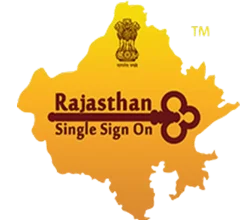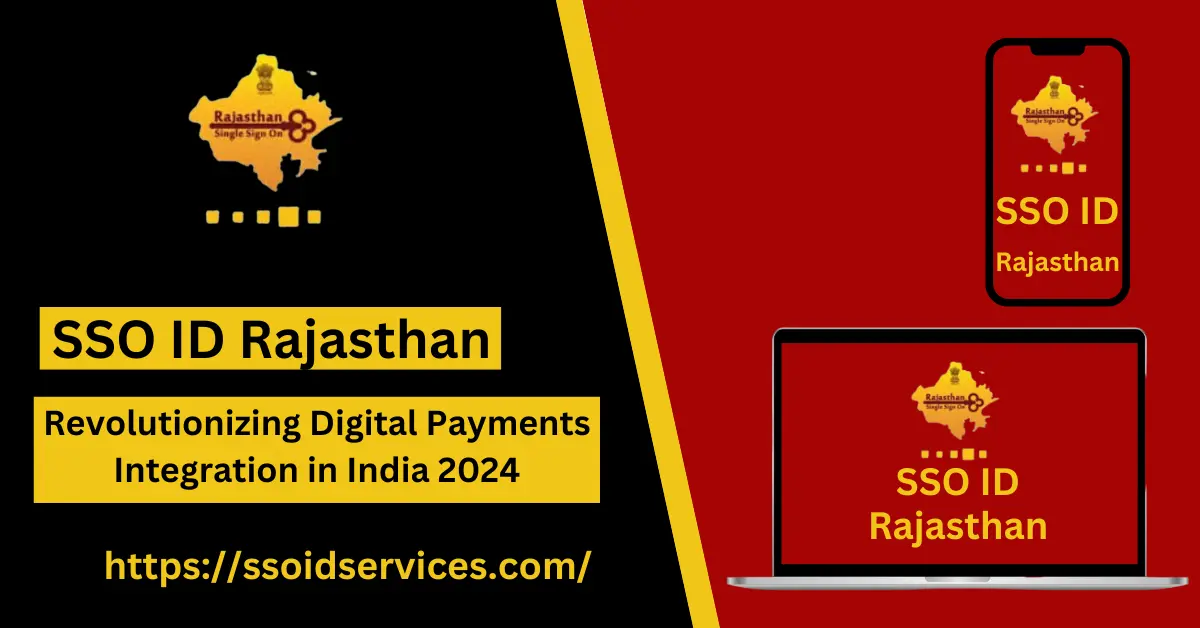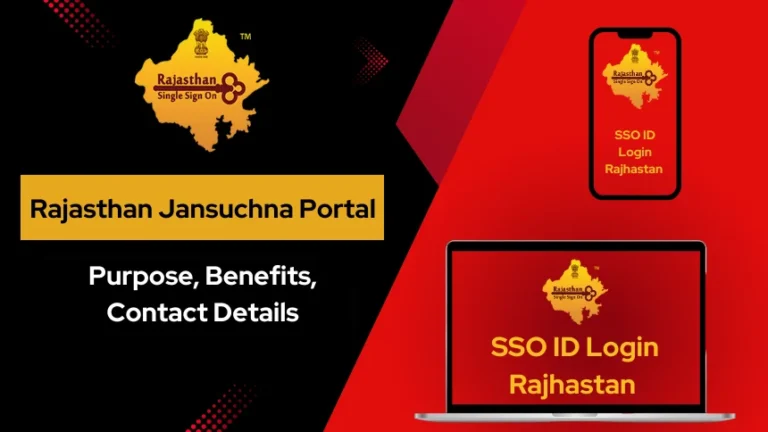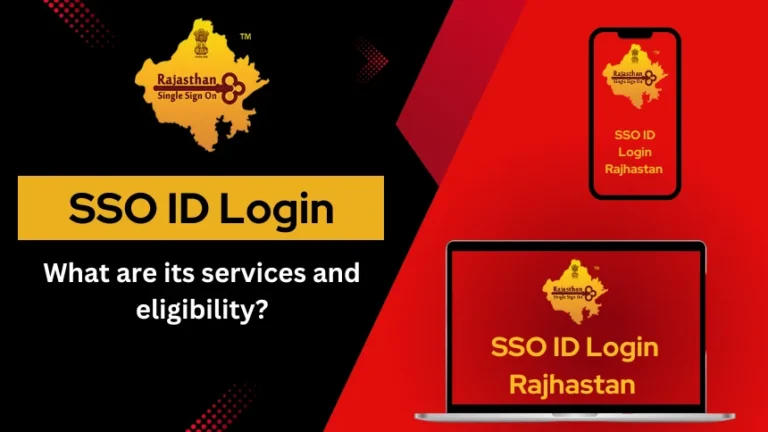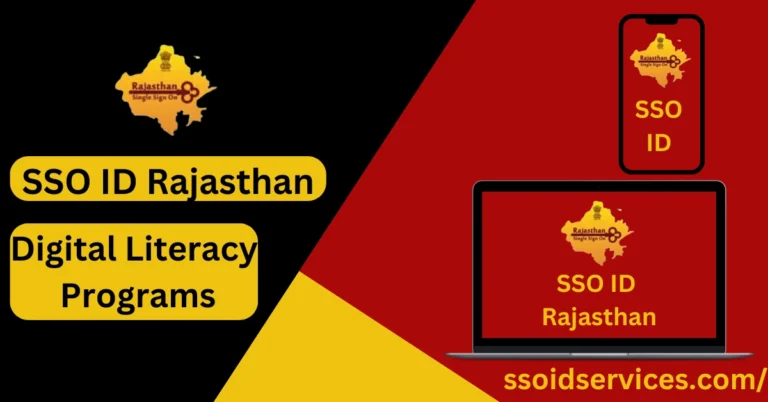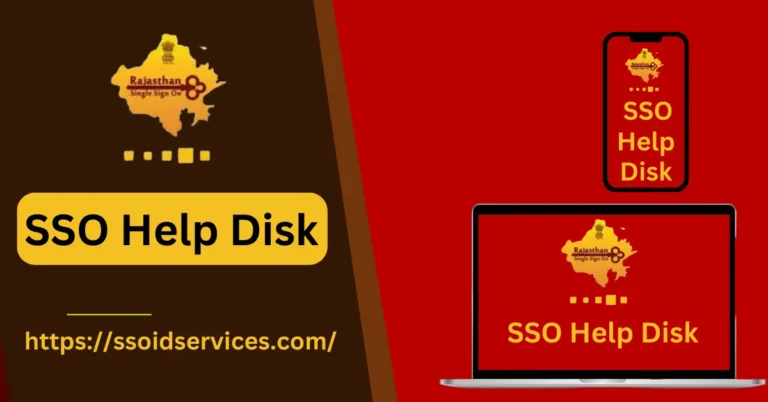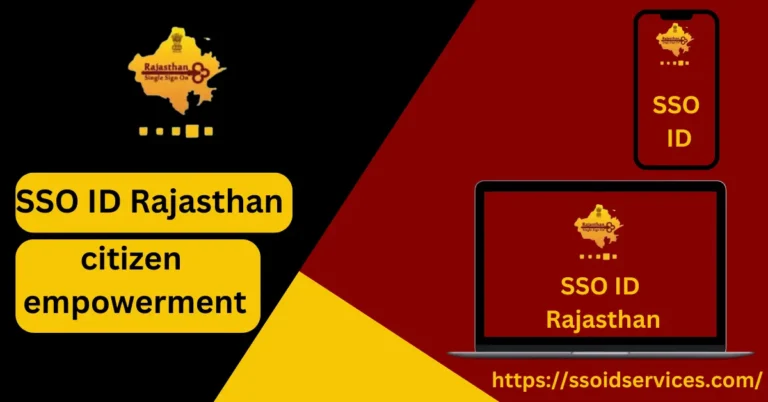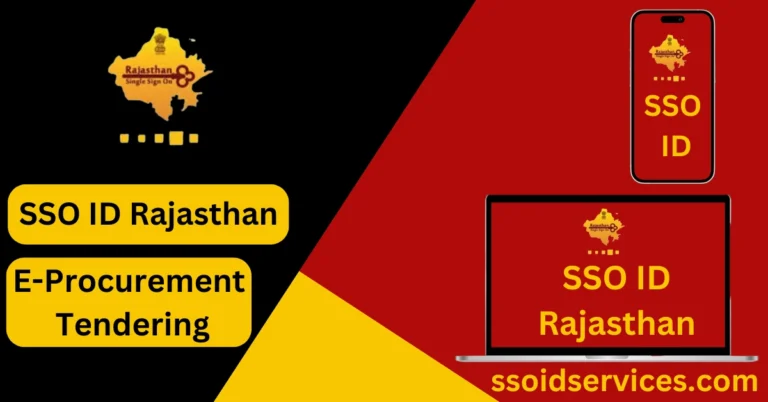Revolutionizing Digital Payments Integration in India 2024
Revolutionizing Digital Payments: Rajasthan has taken a major step in integrating the Single Sign-On Identification system (SSO ID), which is used to identify users, with electronic payments. This will streamline government services while fostering an economy that does not use cash. The goal of this initiative is to provide citizens with a unified identity, so that they can access multiple services on a common platform. The integration of SSO ID and digital payment enhances convenience and security. It also makes transactions simpler and more transparent. In order to achieve this, a variety of factors must be considered, including privacy, security, inclusion, and the technical infrastructure. In this article we explore the main factors that influence this integration.
Also Read: Students Benefit from SSO ID Rajasthan
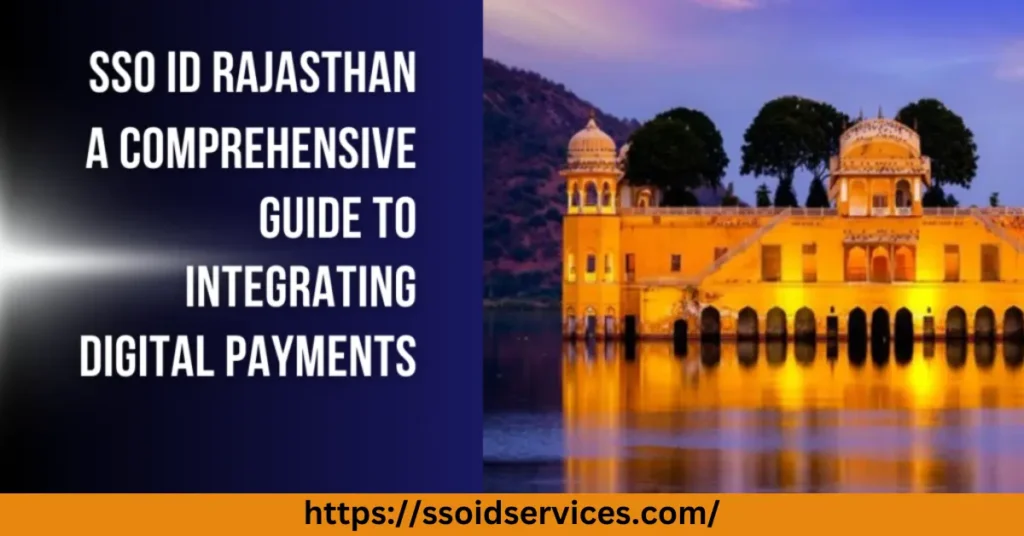
Revolutionizing Digital Payments: What is the importance of SSO ID Rajasthan?
SSO ID, the system that is used by residents of Rajasthan to create a central digital identity allows them access multiple services from both government and non-government organizations with only one login. This system reduces the complexity of the user’s experience, allowing them to access services like eGovernment, healthcare, education and others with a single login. SSO ID allows for cashless payments with the integration of digital transactions.
Also Read: Land Record Services with SSO ID Rajasthan
SSO ID Rajasthan was founded in 1992.
For us to fully understand digital payments integration, first we need to grasp the concept SSO Rajasthan. It is an unified platform for digital identities that allows the user to log in and access many government services. This new approach improves security and simplifies the experience for users by cutting down on the number of login credentials they need to keep track of.
SSO ID in Rajasthan has been implemented to facilitate a more seamless relationship between the citizens of Rajasthan and government departments. This system has greatly reduced bureaucratic barriers and enhanced service delivery by providing a single authentication method.
Integrating Digital Payments is a Game Changer
SSO ID Rajasthan integration with digital payment is an important step for the state’s eGovernment initiative. Through this integration, citizens can pay various bills to the government, including taxes, utilities, and services fees, by using their SSOID credentials. The system is based on the India digital payment ecosystem’s robust infrastructure, such as platforms like UPI(Unified Payments Interface), BHIM (Bharat Interface For Money), etc.
Key factors affecting the integration
Protection of privacy
Securing robust privacy and data security are critical to the integration of digital payments into SSO ID. Users’ personal information and financial data must be protected from unauthorized cyber threats and access. For the system to be trusted, strong encryption is required, along with multi-factor identification and security audits. The complexity of security features can often discourage users from adopting the system.
The User Experience:
It is the primary aim of this integration to deliver a seamless, convenient user experience. SSO ID and digital payments can be used to streamline transactions such as paying bills, shopping online, or gaining access to government services. In order to realize this convenience, it is important that the user interface be designed with care, so as to make sure all demographics can use it, including those who are less tech-savvy.
Inclusivity:
Inclusion of all populations is essential. Digital payment systems should be accessible to everyone, especially those living in remote locations or with poor digital literacy. In order to avoid leaving anyone behind, integrations should also consider offering offline payment methods or assistance programs. This digital divide continues to be a challenge. Closing this gap and encouraging widespread digital payment adoption with SSO IDs is essential.
Technology Infrastructure
SSO IDs and digital payment services cannot function without a solid technical infrastructure. These include reliable Internet connectivity, secure server systems, and efficient database management systems. In order to maintain and upgrade this infrastructure, and handle the increasing load of users and guarantee uninterrupted service for all customers, it is important that government invests in its maintenance and upgrading. It is essential that payment systems, platforms and other existing infrastructure are compatible with the new service.
A Balanced Act: The Challenges of Tradeoffs
SSO ID Rajasthan integration with digital payment offers many advantages, but also comes with several challenges. This requires careful consideration of all competing factors.
Accessibility or security?
One of the main challenges in creating a system that is both accessible and secure for everyone, while also maintaining a high level of security, is finding the perfect balance. Users with limited digital skills, in particular, might be discouraged by complex security protocols. Simplificating the process excessively could also compromise system security.
Centralization vs. Privacy:
SSO ID’s centralization is convenient but also raises questions about privacy. The government should ensure that personal and financial data is kept safe from theft and misuse.
Digital Inclusion and Traditional Methods Traditional Methods
It’s important that, even as we push for a digital world, traditional payment options are maintained to make sure those who do not feel comfortable using digital transactions don’t fall behind.
Innovation vs. Stability:
In order to stay ahead of the curve, digital payment systems must be constantly innovated. But frequent updates to the system can lead to confusion and instability. The balance must be struck between the integration of new technology and maintaining an stable, reliable platform.
Cost-Efficiency Vs. Service Quality:
Investments in implementing and maintaining an integrated systems are significant. The government has to balance its need for a reliable and high-quality service against the limited budgetary resources.
Challenges of implementation
There are many challenges to the integration between SSO ID Rajasthan digital payments and SSO ID Rajasthan.
Digital Divide
Rajasthan shares a similar divide with many Indian States in regards to digital literacy and internet connectivity. For the integration system to be widely adopted, it is vital that this gap can be bridged.
Cybersecurity Threats
Cybercrime risks increase as online transactions become more common. The challenge of protecting the system against cyber-threats such as hacking and phishing is never ending.
Technical Glissches
The integrated system is complex, so technical problems such as payment failures or server outages, and issues with synchronization of different departments within the government can happen, which could affect user trust.
Change Resistance:
It is possible that both the government and its citizens, who have become accustomed to their traditional ways of working, will resist the adoption of a new system. Therefore comprehensive change management strategy are required.
Data Management
To ensure the integrity, security and accessibility of vast quantities of data created by transactions is an enormous challenge.
Affected Stakeholders
SSO ID Rajasthan and digital payments have wide implications for multiple stakeholders.
Citizens:
This integration means greater convenience for the citizens of Rajasthan. They will save time, have easier access to government services and enjoy more transparency. To be successful, they will need to adopt new technologies as well as remain vigilant when it comes to their digital safety.
Government Departments
It streamlines departments’ processes and improves efficiency. It can also provide valuable data insights to inform decisions. This requires significant modifications to the operational procedure and staff must be trained on a regular basis.
Local Businesses
Rajasthan’s small and medium-sized enterprises can enjoy easier access to services and tax payment. The system may not be fully utilized unless they invest in the digital infrastructure or training.
Financial Institutions
This ecosystem is dominated by banks and payment services providers. As well as presenting new opportunities to them, this also raises their responsibilities when it comes to ensuring seamless and secure transactions.
Technology Providers:
Companies developing and maintaining integrated systems face both new business opportunities and the challenges of upgrading solutions in order to remain current with security standards and evolving requirements.
It’s Time to Go Forward
Rajasthan is focusing on several critical factors as it continues to improve and extend its SSO ID implementation with digital payments.
Continuous Improvement:
User feedback and regular evaluations should lead to continuous improvements in the user interface and functionality.
Cybersecurity Enhancement
For the system to remain trustworthy, investing in sophisticated cybersecurity measures as well as conducting regular security assessments is essential.
Digital Literacy Initiatives
To increase digital adoption, and to ensure no citizen falls behind, expanding digital literacy in rural areas will be crucial.
Interoperability:
To ensure the system’s long-term viability, it will be crucial to make sure that Rajasthan SSO ID can seamlessly interact with other digital initiatives on a state or national level.
Data Protection Legislation:
The system will need to be aligned with the evolving laws on data protection as it handles personal and financial information.
Impact and Benefits
Rajasthan’s economy and government could benefit from the integration of SSO ID into digital payments. This could prevent corruption and the leakage of government subsidies and benefits. The system could also be used to increase efficiency and save time in the public sector, both for government employees and citizens.
A cashless environment can improve transparency and increase tax revenues. Digital payments provide convenience and safety. This is especially true in the post-pandemic era, where people prefer contactless transactions.
conclusion
SSO ID Rajasthan’s integration with digital payments has the power to transform public and privately-run transactions by improving convenience, security, safety, and efficiency. The integration of SSO ID Rajasthan with digital payments is a transformative initiative that has the potential to enhance convenience, security, and efficiency in public and private transactions.
Stakeholders must put security first, while also working hard to make the integration system accessible and user-friendly for all. To achieve widespread adoption, efforts to educate the public and foster trust are crucial. Rajasthan could set the example of a transparent, efficient, and inclusive digital society by considering and addressing these issues.
